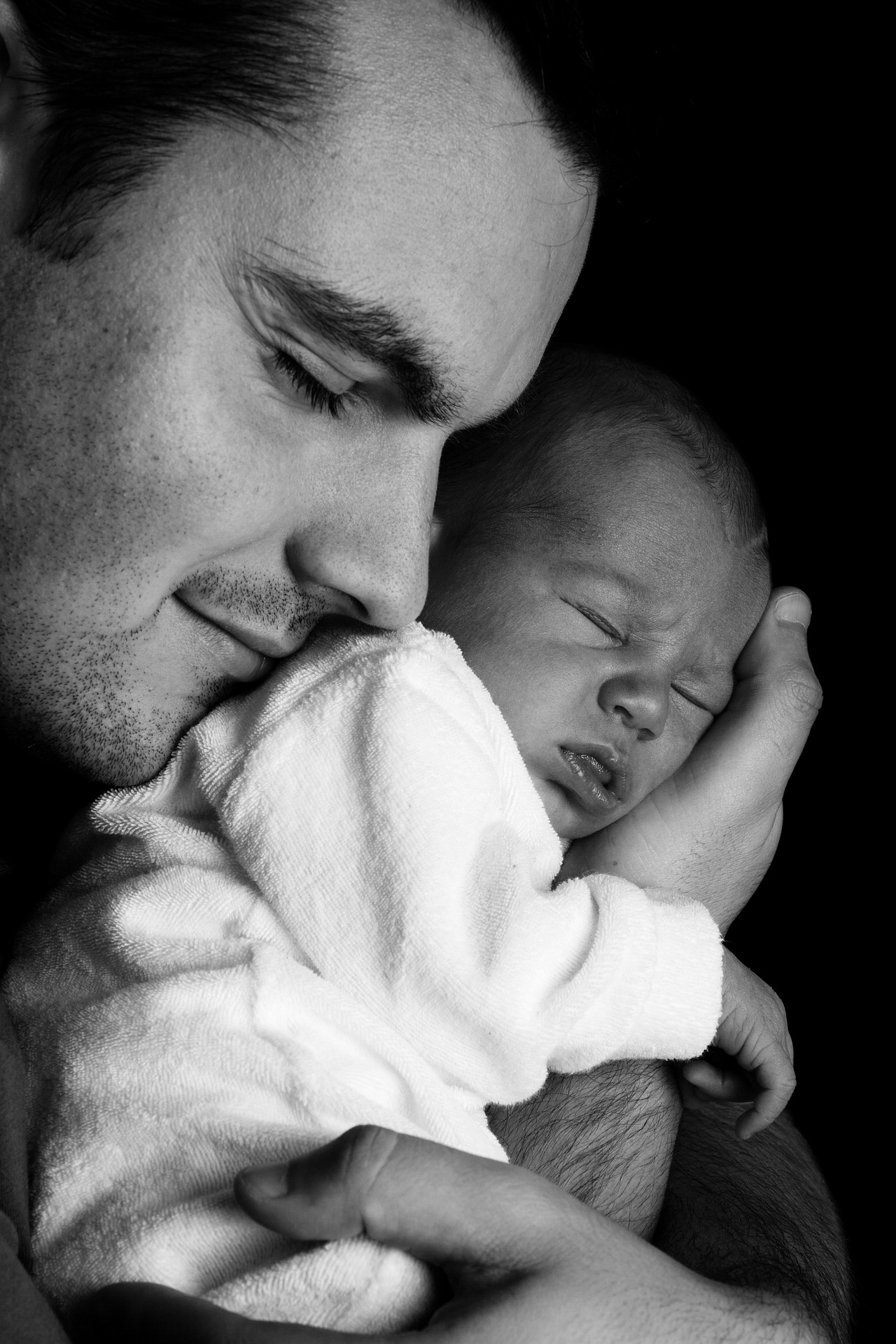Hormones
 Hormones are another class of chemicals that affect behaviour. Unlike neurotransmitters, hormones are not released by the terminal buttons of a neuron; instead, they are secreted by glands in the endocrine system. So epinephrine (adrenaline) is released by the adrenal gland into the bloodstream as a hormone whereas norepinephrine (noradrenaline) is released by neurons in the brain as a neurotransmitter. Hormones are released directly into the bloodstream; as a result, they take longer to produce changes in behaviour than neurotransmitters. However, they also produce effects that last a lot longer than an action potential.
Hormones are another class of chemicals that affect behaviour. Unlike neurotransmitters, hormones are not released by the terminal buttons of a neuron; instead, they are secreted by glands in the endocrine system. So epinephrine (adrenaline) is released by the adrenal gland into the bloodstream as a hormone whereas norepinephrine (noradrenaline) is released by neurons in the brain as a neurotransmitter. Hormones are released directly into the bloodstream; as a result, they take longer to produce changes in behaviour than neurotransmitters. However, they also produce effects that last a lot longer than an action potential.
Hormones can only produce reactions in certain cells – known as target cells - that have an appropriate receptor site for the hormone. When the hormone binds to the target cell, it either increases or decreases its function.
Like neurotransmitters, hormones affect a wide range of behaviours. There are at least fifty different types of hormones. As you will see in the table of hormones, some hormones “act as neurotransmitters.” This means that they work in the brain by targeting receptor sites on the neuron’s synaptic gap, even though the chemical is not stored in the terminal buttons, but is secreted by an endocrine gland. When discussing the role of hormones, neuropeptide Y and oxytocin are definitely hormones, but they sometimes act as though they were neurotransmitters.
Hormones
| Adrenaline | Secreted by the adrenal glands; responsible for arousal and the "fight or flight" response. Plays a role in emotional memory formation. |
| Cortisol | Secreted by the adrenal glands; helps control blood sugar levels, regulate metabolism, reduce inflammation and assist with memory formation. |
| Melatonin | Secreted by the pineal gland; signals the relaxation and lower body temperature that help with a night of restful sleep. |
| Neuropeptide Y | Produced by the hypothalamus; acts as a neurotransmitter in the brain. Stimulates food intake, reduces anxiety and stress, reduces pain perception, affects the circadian rhythm. Higher levels of NPY appear to be linked to higher levels of resilience. |
| Oxytocin | Produced by the hypothalamus and secreted by the pituitary gland. When it affects the brain, it acts as a neurotransmitter. Plays a role in mother-child attachment; believed to play a role in social bonding and trust between people. |
| Testosterone | Produced by the testes; plays a facilitative role in aggressive behaviour - that is, it doesn't cause aggression, but higher levels of testosterone result in higher levels of aggression. |
Perhaps the most well-known hormone is adrenaline. Adrenaline activates what is known as the Fight or Flight response. The flight-or-fight response is what is known as a hormone cascade – that is, hormones triggering more hormones. The release of adrenaline is part of the hypothalamic-pituitary-adrenal axis – or HPA axis for short. When a stimulus threatens us – the hypothalamus responds by activating the pituitary gland. The pituitary gland then releases a hormone that activates the adrenal glands, which are located on top of your kidneys. As a result, both cortisol and adrenaline are released into the bloodstream. Cortisol is responsible for dumping glucose into your bloodstream in order to provide energy, and adrenaline increases the heart rate, blood pressure, and respiration. This reaction has evolved to help humans survive in the face of danger so that they can quickly escape an immediate threat.
But many hormones have more than one function. Adrenaline also plays a key role in memory formation, as seen in a study by Cahill & McGaugh (1995).
Research in psychology: Cahill & McGaugh (1995)
 The aim of the study was to investigate the role of adrenaline and the amygdala on emotional memory.
The aim of the study was to investigate the role of adrenaline and the amygdala on emotional memory.
Participants were divided into two groups. Each group saw 12 slides that were accompanied by a very different story. In the first condition, the participant heard a rather boring story about a woman and her son who paid a visit to the son’s father in a hospital where they witnessed the staff in a disaster preparation drill of a simulated accident victim.
In the second condition, the participant heard a story where the boy was involved in a car accident where his feet were severed. He was quickly brought to the hospital where the surgeons reattached the injured limbs. Then he stayed in the hospital for some weeks and then went home with his mother.
Two weeks after participating in the experiment the participants were asked to come back and their memory for specific details of the story was tested. The test was a recognition task that consisted of a series of questions about the slides with three options for them to choose from. For example, what was the job of the father of the boy in the story? A. A janitor B. A lab technician C. A surgeon.
The researchers then did a follow-up study. In the follow-up study the above procedure was repeated, but this time the participants in the "traumatic story" condition were injected with a beta-blocker called propranolol. Beta-blockers interfere with the release of adrenaline; in this study, it was used to prevent activation of the amygdala to prevent the formation of emotional memory.
In the original version of the experiment, the researchers found that the participants who had heard the more emotionally arousing story demonstrated better recall of specific details of the story. They could also recall more details from the slides. In the follow-up study, they found that those that had received the beta-blocker did no better than the group that had heard the "boring" story. They, therefore, concluded that adrenaline and activation of the amygdala play a significant role in the creation of memories linked to emotional arousal.
Here you can read more about McGaugh & Cahill (1995).
By carrying out a well-controlled experiment, Cahill & McGaugh were able to deduce a cause-and-effect relationship between adrenaline and the activation of the amygdala in the creation of emotional memories. But as the study was well controlled and rather simplistic, can we apply the findings to the “real world?”
The research has been applied to the treatment of accident victims with the goal of preventing PTSD. Pitman et al (2002) carried out an experimental study where patients coming into emergency rooms after a traumatic injury were given either beta-blockers (propranolol) or a placebo. One month after the traumatic event, people who had received the beta-blockers showed fewer symptoms of PTSD than those that had received no beta-blockers or a placebo. It appears that Cahill & McGaugh’s findings may prove helpful in preventing the onset of PTSD in some patients following trauma.
Sample exam response
The following is a model SAQ response from Paper 1.
Explain how one hormone may affect human behaviour.
One hormone that affects human behaviour is adrenaline. It is produced by the adrenal glands and plays an important role in what is called the “flight or fight response.” When we are afraid, the amygdala signals the release of adrenaline, which then stimulates the sympathetic nervous system, resulting in increased blood flow to muscles, increased heart rate and increased breathing rate. This prepares an organism to either fight against a threat, or to run away from it.
Since we often create strong memories of things that have frightened us, McGaugh & Cahill wanted to study the effect of adrenaline on the creation of emotional memories. They had participants watch a series of slides while listening to a story. In one group, the story was uninteresting. The second group heard a story that was very traumatic about a young boy who was in an accident and his feet were severed. After two weeks, the participants came back and were asked to answer a series of questions about the slides. Those that were in the more emotionally arousing condition remembered more than in the boring condition.
To test the role of adrenaline, they repeated this procedure but gave the participants beta-blockers that interfere with the release of adrenaline. It was hypothesized that if adrenaline is blocked, then the amygdala would not be able to produce emotional memories. It appears that this was the case. The group that took beta-blockers remembered no more detail about the slides than the group that heard the boring story.
It appears that by interacting with the amygdala, adrenaline plays a key role in the creation of emotional memories.
_______________________
Why is this a strong response?
- Answering the question in the first sentence of the SAQ is a good strategy.
- The response explains the function of the hormone with a link to human behaviour.
- A study is identified that links the hormone to a cognitive process – which is also part of human behaviour.
- The procedure of the study is clearly described and the results clearly stated.
- The end of the SAQ links back to the question.
Checking for understanding
Which of the following is not a key difference between neurotransmitters and hormones?
Hormones are produced in glands throughout the body.
Looking at the list of hormones, which one do you think is most likely to be linked to post-traumatic stress disorder?
Neuropeptide Y is linked to resilience - or our ability to "bounce back" from difficult experiences. it appears to have a role in cutting off the stress response. Research shows that people with higher levels of NPY are less likely to experience PTSD after a traumatic event.
Which of the following is a function of adrenaline?
As seen in the study by McGaugh and Cahill, it appears that adrenaline plays a key role in memories that have a strong emotion.
What was the role of the beta-blocker in McGaugh & Cahill's (1995) study?

 IB Docs (2) Team
IB Docs (2) Team
